On 26-27 April 2018, Francesco Osborne and I attended the third edition of the Springer Nature Hack Day, which was held in its headquarter in Berlin. The Springer Nature Hack Day is an event that allows researchers, developers, tech companies, and Springer Nature itself, to gather together and tackle current research issues. Offering also opportunities […]
Category: Graph Analysis
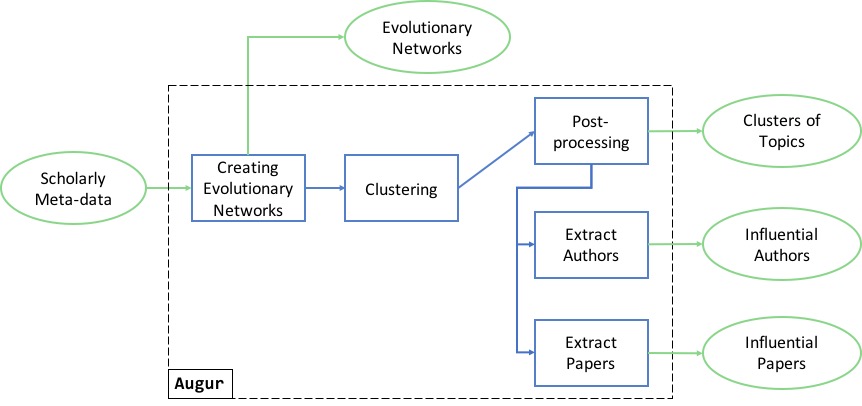
AUGUR: Forecasting the Emergence of New Research Topics
“AUGUR: Forecasting the Emergence of New Research Topics” is a paper submitted to the ACM/IEEE Joint Conference on Digital Libraries 2018, presented on June 5 2018, in Fort Worth, TX, USA Angelo Salatino, Francesco Osborne and Enrico Motta Abstract Being able to rapidly recognise new research trends is strategic for many stakeholders, including universities, […]
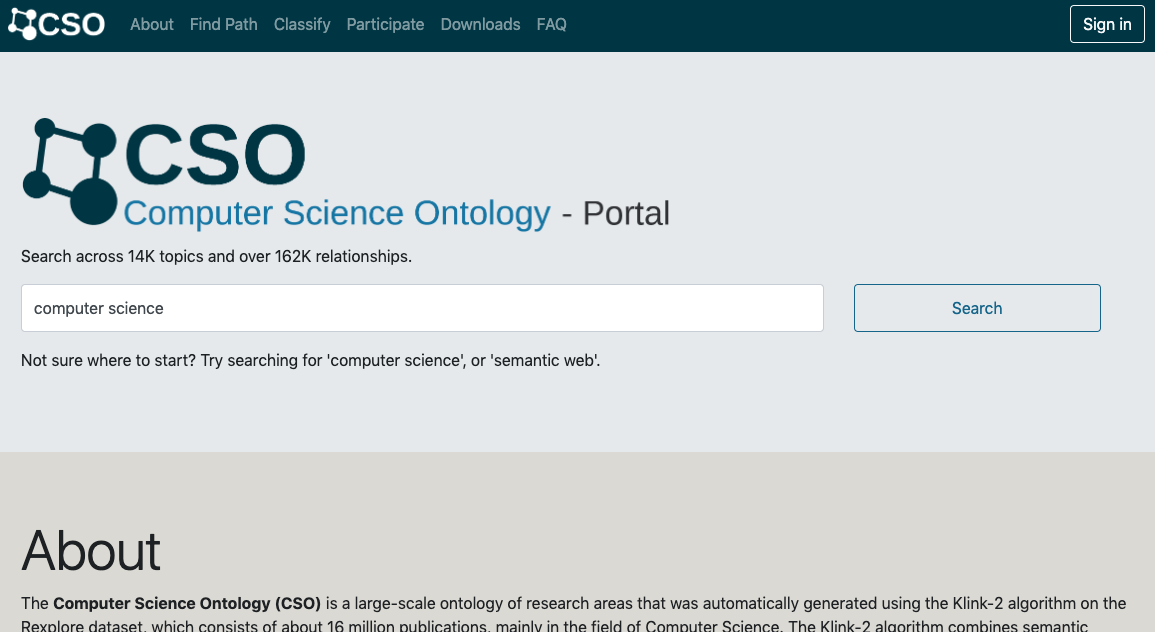
Computer Science Ontology Portal (or simply CSO Portal)
The Computer Science Ontology Portal (also referred to simply as CSO Portal) is a web application that enables users to download, explore, and provide granular feedback on CSO at different levels. This last feature allows us to periodically review the status ontology and release new version according to the received feedbacks.

SpringerNature Hackday – London
On the 29th November 2017, myself with two KMi colleagues (Andrea Mannocci and Thiviyan Thanapalasingam) attended the second edition of SpringerNature HackDay in London (@ SpringerNature Campus). Aliaksandr Birukou, Executive Editor of Computer Science at Springer Nature and collaborator of our research team at the Knowledge Media Institute, also joined our group on the HackDay. The whole […]
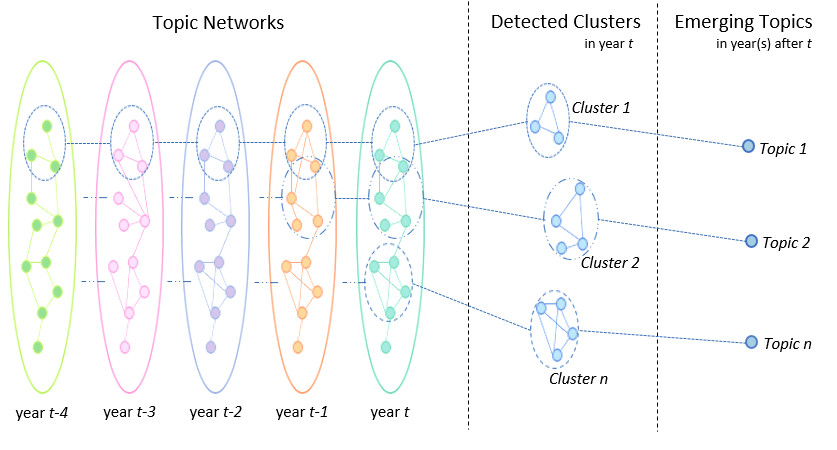
Early Detection of Research Trends
Being able to rapidly recognise new research trends is strategic for many stakeholders, including universities, institutional funding bodies, academic publishers and companies. The literature presents several approaches to identifying the emergence of new research topics, which rely on the assumption that the topic is already exhibiting a certain degree of popularity and consistently referred to by a community of researchers. However, detecting the emergence of a new research area at an embryonic stage, i.e., before the topic has been consistently labelled by a community of researchers and associated with a number of publications, is still an open challenge.
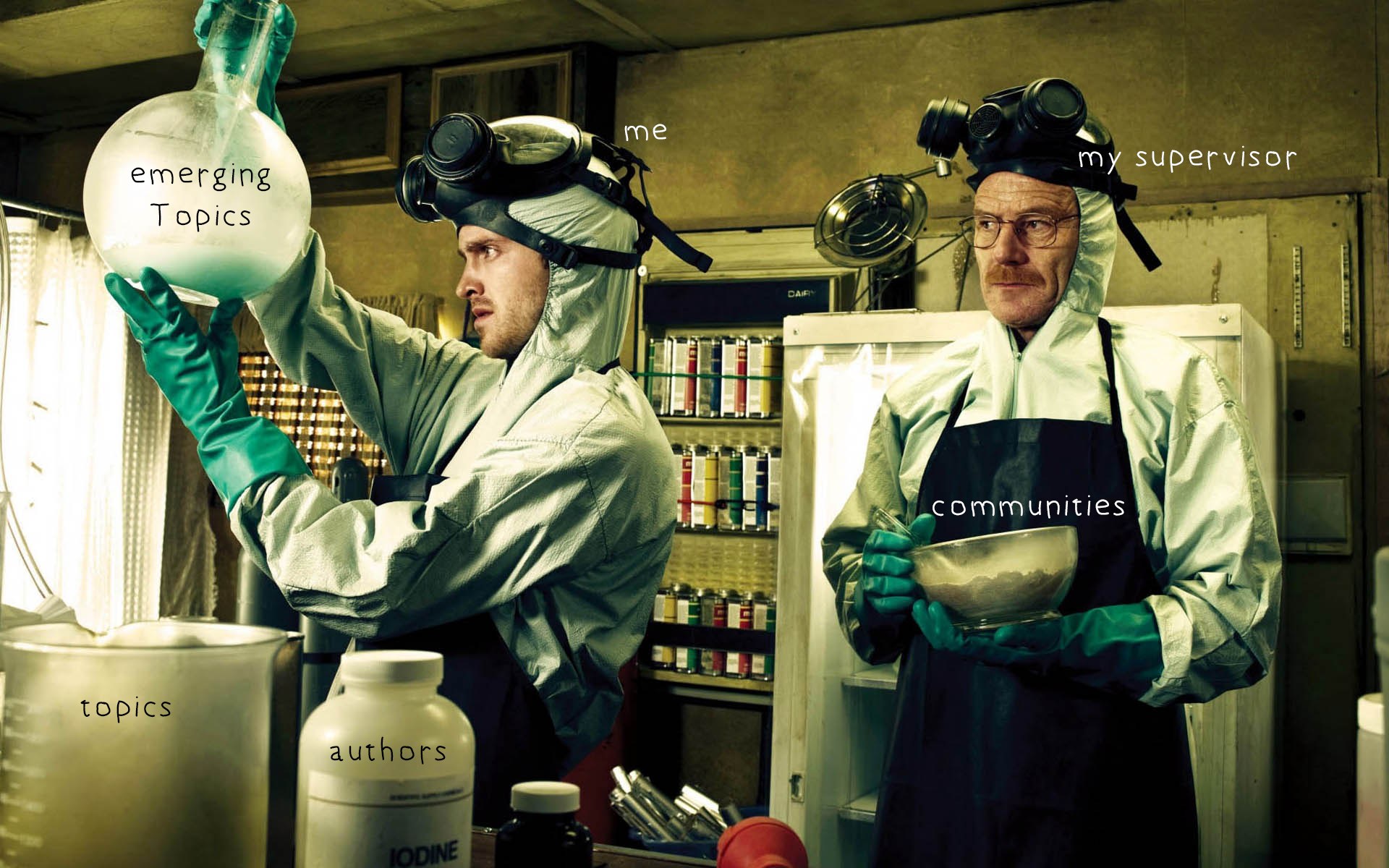
3MT – Early detection of research trends
On 16th May 2017, the STEM Faculty of my university organised a 3 Minutes Thesis (3MT) in which each candidate has a time slot of three minutes to describe their thesis. The speech can be supported by one static slide showing important features of the work. I wish I had shown the one above. In […]
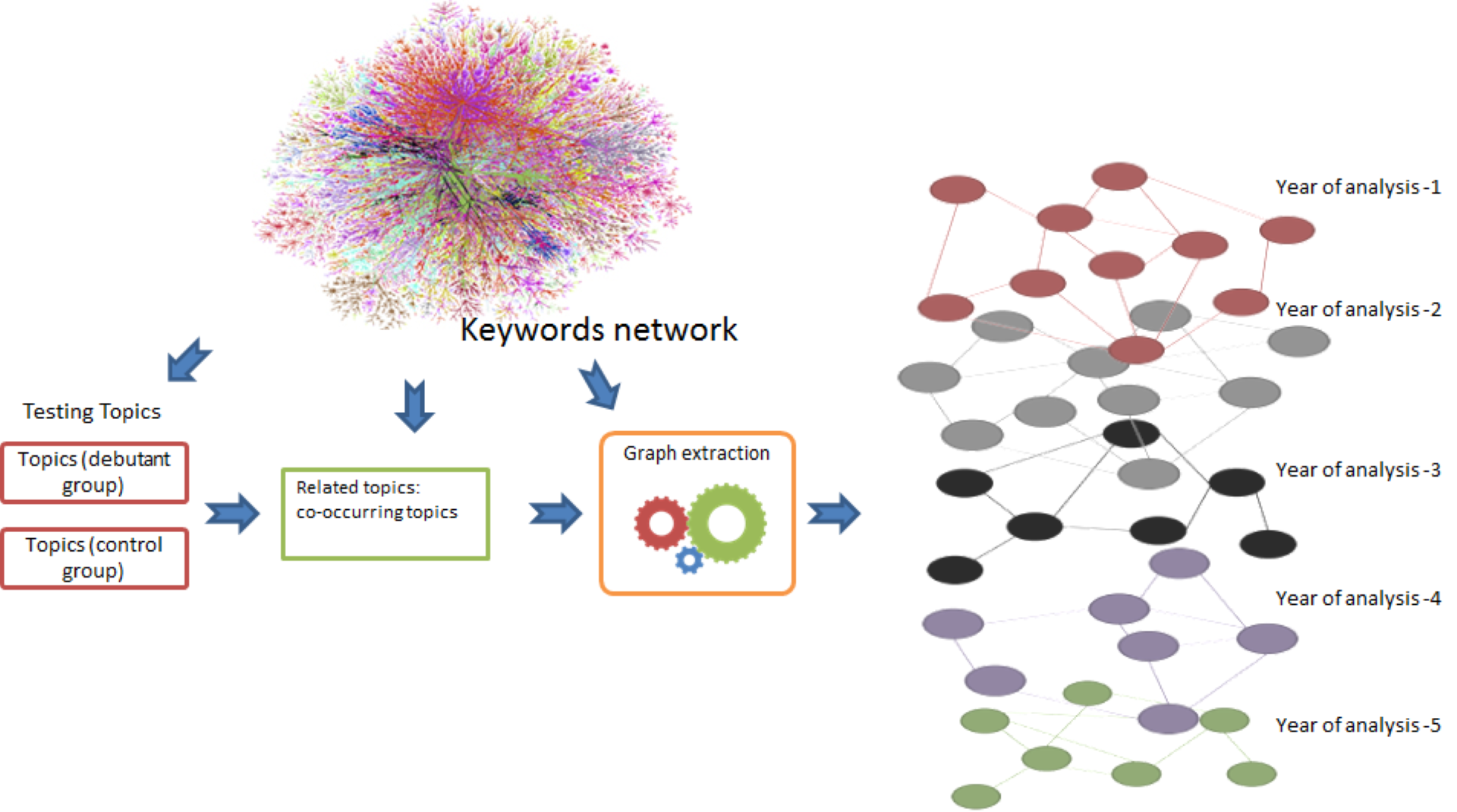
How are topics born? Understanding the research dynamics preceding the emergence of new areas
“How are topics born? Understanding the research dynamics preceding the emergence of new areas” is a peer-reviewed paper submitted to PeerJ Computer Science. The paper has been submitted in July 2016 and accepted in May 2017. All the co-authors are thankful to the reviewers and the editor for providing insightful comments and thus improving the […]

Export Graph in R via JSON
This post presents an easy solution for exporting and importing a graph object of igraph library. In its previous versions, the library used to have the save and load functions in which you could respectively export and import the graph object [1]. Although they seem to not be in the library anymore, the documentation states: “Attribute values […]
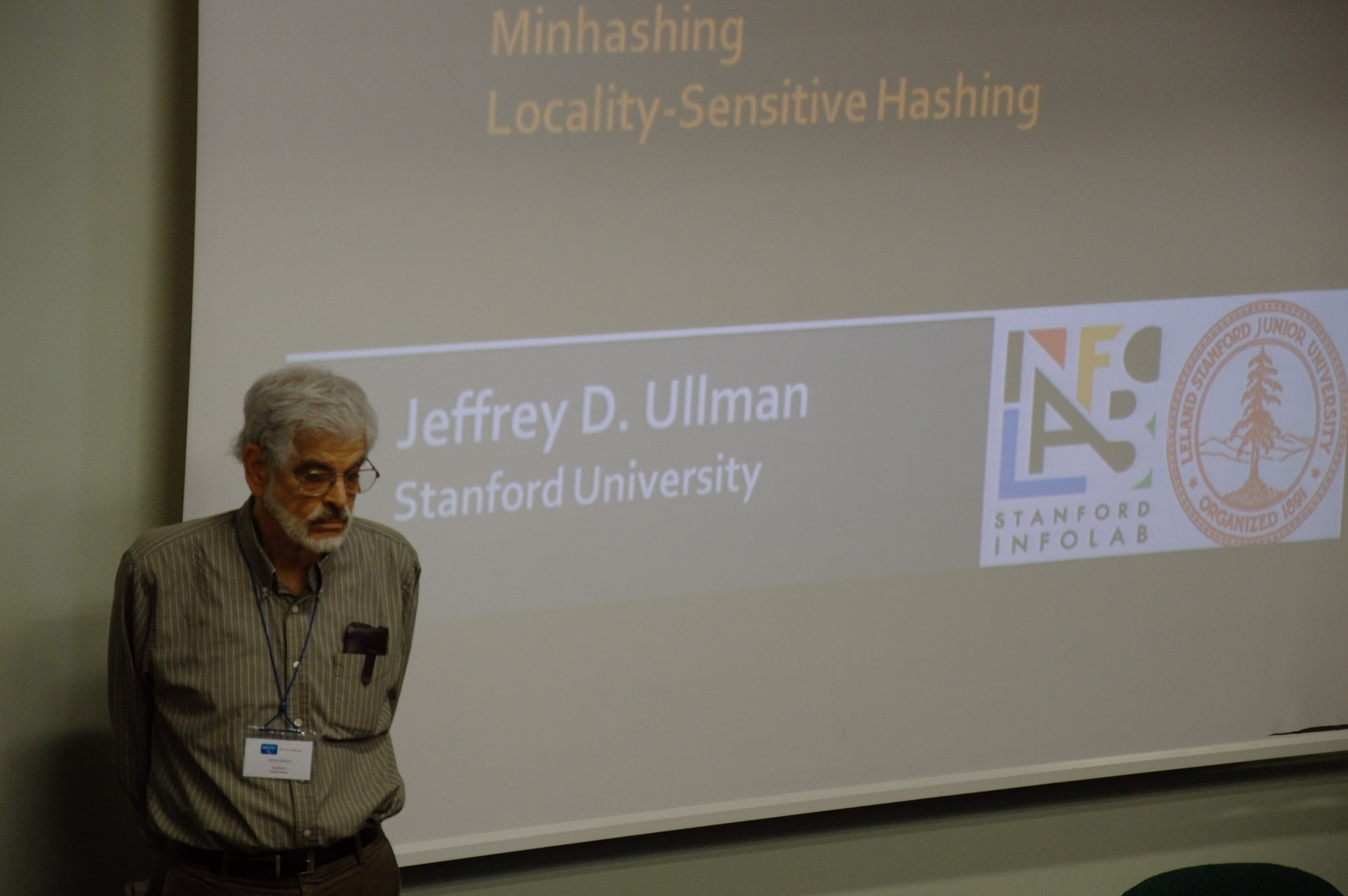
BigDat2017: a review
This week I have been attending the 3rd edition of the Big Data winter school: BigDat2017. It was held in my former campus, at the University of Bari (IT). It was a really nice feeling to be back for a while, sitting on those benches and following courses, once again. Big Data has recently gained […]

Department Research Seminar: Early Detection of Research Topics
On the 8th February I delivered a seminar to my department (KMi @ OU) in which I described the work I have been doing in the last two years for my postgraduate research. I started with a little bit of introduction about science. Shortly, I moved to the currently available technologies for keeping track of the […]



